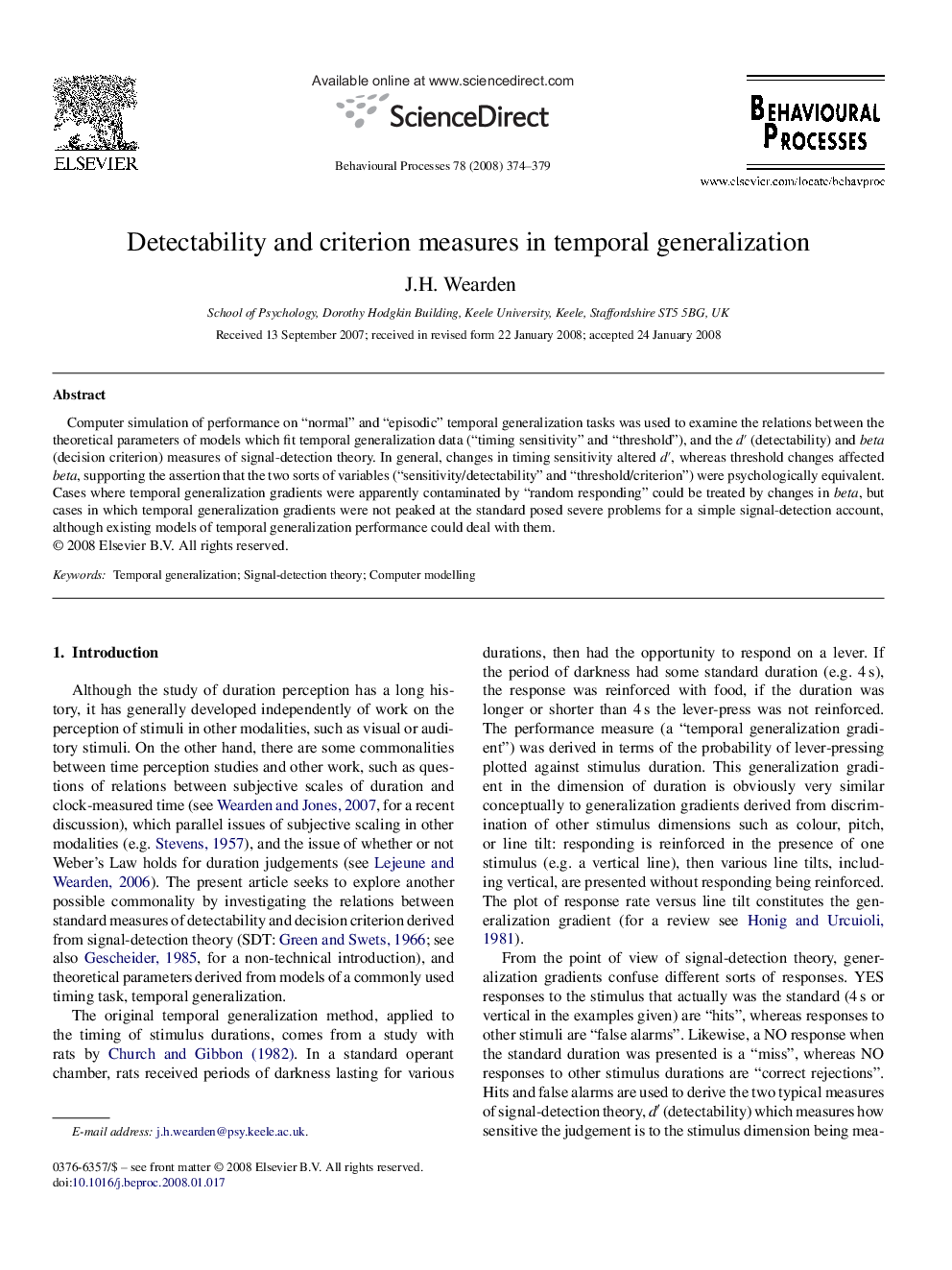| Article ID | Journal | Published Year | Pages | File Type |
|---|---|---|---|---|
| 10971287 | Behavioural Processes | 2008 | 6 Pages |
Abstract
Computer simulation of performance on “normal” and “episodic” temporal generalization tasks was used to examine the relations between the theoretical parameters of models which fit temporal generalization data (“timing sensitivity” and “threshold”), and the dâ² (detectability) and beta (decision criterion) measures of signal-detection theory. In general, changes in timing sensitivity altered dâ², whereas threshold changes affected beta, supporting the assertion that the two sorts of variables (“sensitivity/detectability” and “threshold/criterion”) were psychologically equivalent. Cases where temporal generalization gradients were apparently contaminated by “random responding” could be treated by changes in beta, but cases in which temporal generalization gradients were not peaked at the standard posed severe problems for a simple signal-detection account, although existing models of temporal generalization performance could deal with them.
Related Topics
Life Sciences
Agricultural and Biological Sciences
Animal Science and Zoology
Authors
J.H. Wearden,
